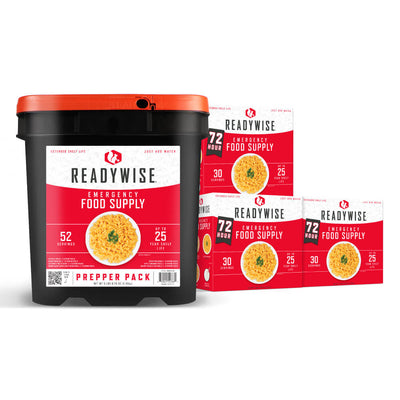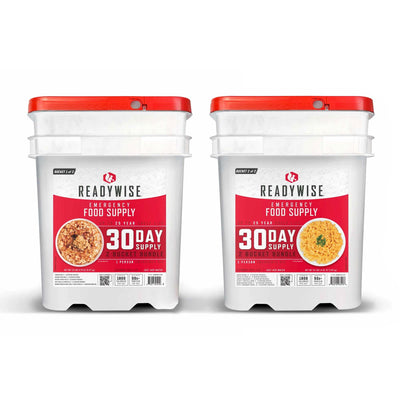Three Common Household Products for First Aid
Let's first start with the obvious; medical care is best provided by a doctor in an office or a hospital. But, if a disaster strikes or you're facing an emergency and can’t get professional care, there are some common household products that can be used for wound care and dressing. Keep these items stocked in your pantry and shelter. Remember, though, these products are intended for minor wounds, not critical life-threatening injuries.
Honey
Honey has healing benefits in minor wound care. Honey is probably better known as a "home remedy" for treating cough. Lesser known, however, is honey's soothing and potential healing effect on minor cuts and wounds. Honey has natural anti-oxidants and anti-inflammatory properties. As a wound dressing, it is soothing and can help fight off bacteria. Remember to properly clean a wound first with soap and water before applying it.
Laboratory studies have shown that honey also can hamper the growth of food-borne illness, like E. coli and salmonella. It also has a demonstrated effect fighting certain bacteria, like staphylococcus aureus (commonly known as "staph infection"). When stocking up on honey, the darker the better. Darker colored honey has more antibacterial and anti-oxidant oomph.
WARNING: Never give young children (especially infants under one) honey, whether as a cough suppressant or as a wound dressing. Giving honey to infants can lead to botulism because their digestive system isn't fully developed.
Vinegar
Out of hydrogen peroxide or rubbing alcohol? Clean minor cuts and abrasions with a vinegar solution. Be sure to use bottled or purified water. If you're out of bottled water and only have tap water, be sure to boil it first to eliminate possible bacteria or chemicals. Mix 2 teaspoons vinegar with 2 cups water.
This vinegar solution can then be applied to minor cuts and abrasions using a cotton swab or clean cloth. Never "double dip" into the solution; if you do, be sure to throw it out. This same mixture can also be used to treat mosquito bites, mild acne and some fungal infections. If the strength of the mixture seems not to work, increase the concentration of vinegar. Just remember, vinegar can burn when applied.
Petroleum Jelly
Commonly known as Vaseline, petroleum jelly can be used as a wound dressing when covered by a bandage. When it comes to wounds a bit bigger than minor cuts and abrasions, petroleum jelly can help in the healing process. Clinical studies have shown that wounds kept moist and covered heal quicker and better than wounds exposed to the air (which can dry out wounds). Moist wound healing also decreases likelihood of inflammation and possible infection.


















































































